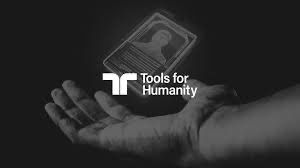
Follow WOWNEWS 24x7 on:

A bold new frontier in digital identity and payments is fast approaching, driven by Tools for Humanity, the company behind the iris-scanning initiative known as World. Backed by more than $250 million in funding and with millions of eyes scanned across the globe, Tools for Humanity (TFH) is betting big that your iris, not your wallet, is the next gateway to seamless, secure transactions. If successful, this innovation could disrupt the $11 trillion payments industry with a simple blink—ushering in a world where biometrics truly rule.
Key Highlights of Tools for Humanity’s Vision
TFH’s core technology centers on the Orb, a biometric device that scans a user’s iris to generate a unique and tamper-proof digital identifier, the World ID.
Over 26 million users have enrolled globally, with 12 million verified via iris scans.
The company aims for a decentralized, privacy-first global identity network, replacing passwords, cards, and legacy forms of identification.
Major industry collaborations include a forthcoming World-branded Visa debit card, available only to those verified by an Orb scan, and a pilot program with Match Group in Japan to use World ID for fraud-proof age verification in dating apps.
Six flagship U.S. cities—Austin, Atlanta, Los Angeles, Miami, Nashville, and San Francisco—have seen the launch of World retail locations and partnerships with gaming retailers to facilitate onboarding.
How Iris-Based Digital Identity Works
The patented Orb device captures a high-resolution scan of a user’s iris, which is then transformed into an encrypted mathematical code, IrisCode. This code underpins the user’s World ID, a digital credential that can be used to verify humanity online, facilitate payments, and access sensitive services without entering passwords or revealing additional personal data.
Crucially, TFH claims to store no biometric images, only mathematical representations, distributed securely across independent partners and blockchains for redundancy and privacy. The system is designed to block duplicate identities—ensuring one person, one identity—an essential safeguard in financial services and digital governance.
Real-World Impact on Payments and Digital Services
TFH’s model promises significant changes in three key areas:
Payments: Through iris authentication, physical cards, pins, and even digital wallets may become obsolete. The biometric validation could enable instant, high-confidence payments at point-of-sale and online.
Digital Access: World ID could serve as the “universal passport”—logging users into apps, verifying eligibility for benefits, and protecting against AI-driven bots or spam across social, financial, and government platforms.
Security and Fraud: With iris matching, a lost phone or card would no longer risk loss of control over personal accounts. Furthermore, by linking access to a unique physical feature, impersonation, phishing, and account takeover attacks could be radically reduced.
Challenges, Criticisms, and Regulatory Pushback
Despite the far-reaching vision, TFH’s technology has met with considerable scrutiny worldwide:
Regulatory: Countries such as Brazil and Kenya have banned or restricted iris collection, citing privacy and consent concerns, particularly where financial incentives are involved. Data authorities have expressed worry over potential risks of irreversible identity breaches and questions about informed consent.
Privacy: Critics point out that, unlike a password, one’s iris cannot be changed if trust in a system falters. Even if TFH fragments and encrypts data, the permanence of biometric identity remains a source of unease among privacy advocates.
Adoption: With millions signed up, expansion in the U.S. and Europe is ongoing but not without skepticism; the challenge will be convincing the masses—and lawmakers—that the security and convenience outweigh the risks.
Industry Formation and the Road Ahead
The scale of Tools for Humanity’s funding and partnerships signals serious intent: the payment ecosystem, AI-driven digital services, and state digital infrastructure could all shift overnight if iris-based identity sees widespread adoption. With Visa and Match Group already invested, and a keen focus on next-generation proof-of-personhood, the movement is gaining momentum among key institutional and fintech players.
The world is watching—will a single scan soon grant access to identity, paychecks, and civic rights, or is this ambitious leap still a bridge too far?
Sources: GCIS UK, Fintech Weekly, Forbes, IAPP, Data Guidance





